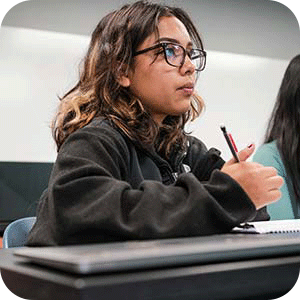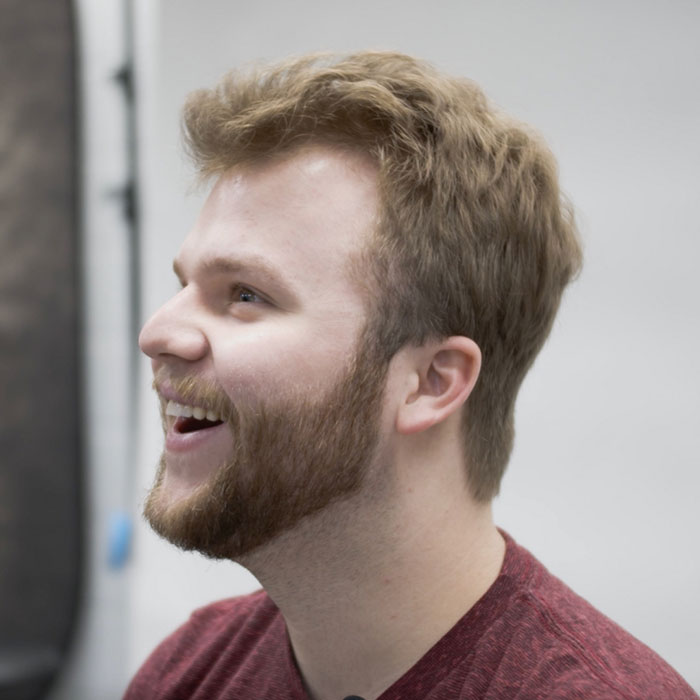-
Biological Sciences - Transfer
Nov 27, 2023, 11:28 AM
Learn about life
Investigate the foundations of nature
Understand and appreciate the infinite complexities of life by studying biological sciences at College of Lake County. Inside this fascinating scientific arena, you study ever-evolving subjects like anthropology, chemistry and more. You learn what makes us, well, us, and you open exciting (and often lucrative) career paths.
What can you do with an A.S. in Biological Sciences?
The Associate in Science (A.S.) degree in Biological Sciences prepares you to transfer and complete a bachelor’s degree in microbiology, zoology or related fields. It lays the foundation for a career in these fields.
Highlights
Financial Aid / Scholarships - Financial Aid/Scholarships Available
*Estimated cost is based on recommended pathway credit hours for full-time students for academic year 2025-2026. This includes in-district tuition and comprehensive fees, before financial aid, including grants, loans, and scholarships, is applied. Actual cost may vary to include additional fees, materials, and other cost of attendance factors such as living expenses, transportation, etc. Explore many opportunities for financial assistance at CLC. Learn more about Cost of Attendance.
Career Outlook
Need help?
Your College & Career Navigator (CCN) helps you
- complete the admission process
- choose an academic program
- enroll in first-semester classes
- get access to helpful resources
Recommended Pathway
This pathway serves as a guide for students to complete the degree or certificate assuming full-time enrollment (registered in 12 or more credit hours per semester) with Semester 1 typically representing a Fall term.
Students are strongly encouraged to meet with their College and Career Navigator (CCN) to identify coursework that will meet degree requirements based on individual academic goals. For a more inclusive list of course options and degree requirements, see the college catalog.
Icon Key
- Credit for prior learning available
- Dual credit options available
- Global citizenship
- Online/Virtual options available
-
Course Code Course Title Credits Course Highlights CLC 120 2 BIO 161 4 CHM 121 5 ENG 121 3 -
Course Code CLC 120 Course Title Credits 2 Course Highlights -
Course Code BIO 161 Course Title Credits 4 Course Highlights -
Course Code CHM 121 Course Title Credits 5 Course Highlights -
Course Code ENG 121 Course Title Credits 3 Course Highlights
-
-
Course Code Course Title Credits Course Highlights BIO 162 4 CHM 123 5 ENG 122 3 MTH 123 3 -
Course Code BIO 162 Course Title Credits 4 Course Highlights -
Course Code CHM 123 Course Title Credits 5 Course Highlights -
Course Code ENG 122 Course Title Credits 3 Course Highlights -
Course Code MTH 123 Course Title Credits 3 Course Highlights
Course options: Students can choose ENG 126 instead of ENG 122.
-
-
Course Code Course Title Credits Course Highlights PSY 121 3 -
Course Code PSY 121 Course Title Credits 3 Course Highlights
Course options: Students can choose other Social and Behavioral Science courses instead of PSY 121.
-
-
Course Code Course Title Credits Course Highlights CHM 222 5 MTH 145 5 CMM 121 3 HUM 127 3 -
Course Code CHM 222 Course Title Credits 5 Course Highlights -
Course Code MTH 145 Course Title Credits 5 Course Highlights -
Course Code CMM 121 Course Title Credits 3 Course Highlights -
Course Code HUM 127 Course Title Credits 3 Course Highlights
Course options: Students can choose other Humanities courses instead of HUM 127.
-
-
Course Code Course Title Credits Course Highlights BIO 222 4 CHM 223 5 SOC 225 3 ART 121 3 -
Course Code BIO 222 Course Title Credits 4 Course Highlights -
Course Code CHM 223 Course Title Credits 5 Course Highlights -
Course Code SOC 225 Course Title Credits 3 Course Highlights -
Course Code ART 121 Course Title Credits 3 Course Highlights
Course options: Students can choose other Social and Behavioral Science courses instead of SOC 225. Students can also choose other Fine Arts courses instead of ART 121.
-
Total Credit Hours
63Learn how CLC helps you transfer
Start at CLC and continue with a 4-year school to earn your bachelor's degree. CLC has partnerships with many colleges and universities, covering a wide range of programs.
Our Guaranteed Transfer Partnerships (GTAs) with a select number of schools guarantee admission to students who meet specific criteria.

Biological Sciences at CLC
Get the bigger picture
Learn about courses, faculty, related programs and more.
Frequently asked questions
Take the next step...
Be debt-free at CLC
CLC has some of the lowest tuition around. Financial aid and scholarships are available—even for working adults.
Request info
Your education is a big investment of your time, money and attention. Gather all the info you need.
Visit us
Get a feel for life on campus when you register for a tour. We'd love to show you around. Oh, and bring family and friends along for the fun, if you want!
Get started
Start your application today—it’s free and easy to complete. When you’re ready, we’re ready to help you take the next step.

